Triathlons are undoubtedly one of the most challenging yet fulfilling sports out there. Whether you are a seasoned athlete or a newbie, the thrill of pushing your body to its limit can’t be rivaled. However, one thing that tends to be confusing for newbies is what equipment is acceptable to use during the race.
Backpacks, handheld water bottles, and even sunglasses seem like no-brainers. But what about folding bikes? Can you use these convenient and portable bikes in triathlons? In this blog, we’ll delve into the pros and cons of using folding bikes in triathlons and help you decide if they are the right choice for you.
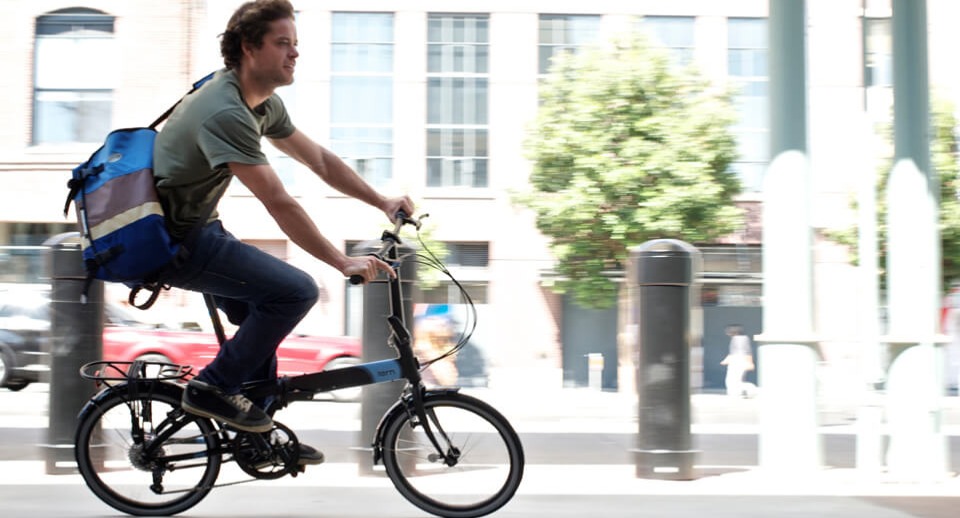
Can You Use Folding Bikes In Triathlons?
As someone who enjoys triathlons and has also utilized a folding bike in my daily commute, the question of whether or not folding bikes can be used in triathlons has crossed my mind. While I cannot speak for all triathlon events, I do know that some allow folding bikes. The advantages of using a folding bike in triathlons include increased portability and ease of transport, versatility for multiple types of terrain, and the ability to fold and store in small spaces.
However, some drawbacks include limited gear options, reduced aerodynamics, and limited durability. As with any equipment, weighing the pros and cons before deciding is important. Ultimately, it is up to individual preference and the specific rules of the event.
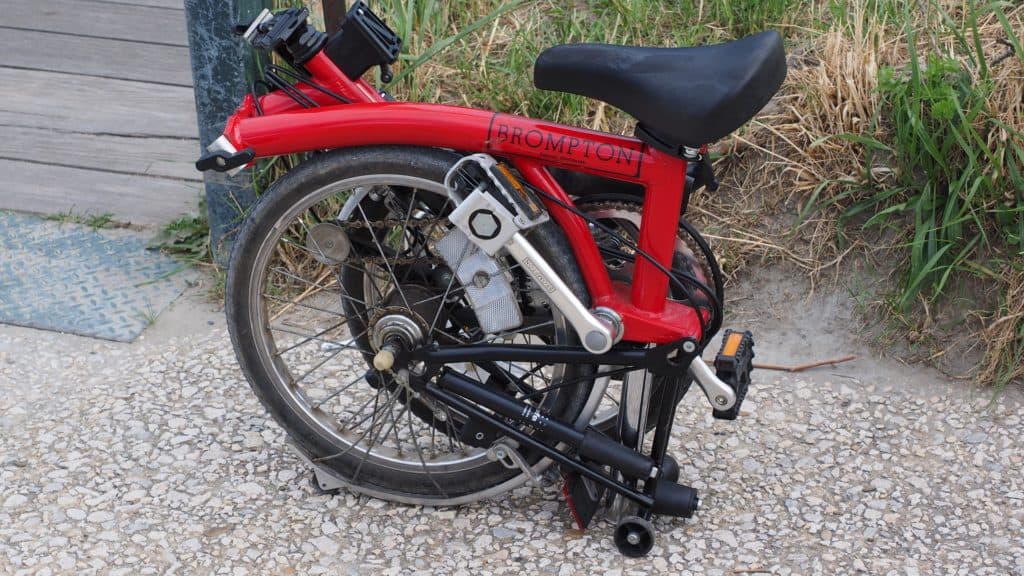
7 Pros
As a triathlon enthusiast, I have always wondered whether folding bikes are viable for this type of competition. After researching and weighing the pros and cons, I have discovered that there are indeed several advantages to using a folding bike in triathlons. One of the most significant benefits is their increased portability and ease of transport, making them ideal for commuters and travelers.
Additionally, folding bikes offer versatility for multiple types of terrain and require less maintenance than traditional bikes. Another advantage is their increased maneuverability in tight spaces, which can be particularly useful during transition periods.
Furthermore, folding bikes are an eco-friendly commuting option and can save costs compared to traditional bikes or cars. Although there are some drawbacks to using a folding bike in a triathlon, the advantages outweigh the cons for those prioritizing convenience and portability.

Increased portability and ease of transport
One of the greatest benefits of using a folding bike is the increased portability and ease of transport. As someone who loves to explore new areas and take my bike with me, being able to quickly fold up my bike and take it on any form of transportation is a true game changer.
Say goodbye to the hassle of securing a traditional bike to the roof of your car or trying to fit it into a crowded subway car. With a folding bike, you can easily carry it onto any form of public transportation or even store it in the trunk of a small car. Plus, the compact size of a folding bike makes it easy to store in even the tiniest apartments or offices.
Overall, the increased portability and ease of transport make folding bikes an excellent choice for anyone looking for a convenient and efficient way to get around.
Versatility for multiple types of terrain
When it comes to triathlons, versatility is key. And that’s where folding bikes can shine. These bikes are designed to handle multiple types of terrain, making them great for competing in triathlons. Whether riding on the road or hitting dirt paths or gravel roads, a folding bike can handle everything.
Plus, because these bikes are generally lightweight, they’re easy to handle and maneuver, which makes them a great choice for riders who need to be quick on their feet so; if you’re looking for a bike that can easily take you from pavement to dirt to grass, consider a folding bike for your next triathlon.

Less maintenance is required than on traditional bikes
One of the biggest advantages of owning a folding bike is the reduced maintenance required compared to traditional bikes. This is because, due to their smaller size and simpler construction, folding bikes have less complex components and are easier to maintain.
Additionally, the compact nature of foldable bikes means they are less likely to suffer damage from the elements, meaning fewer repairs will be needed. This is especially advantageous for those who use their bikes for commuting and other daily activities, as the reduced maintenance requirements save time and money in the long run.
As someone who values efficiency and convenience, I appreciate how owning a folding bike means less worrying about maintenance and more time enjoying riding.
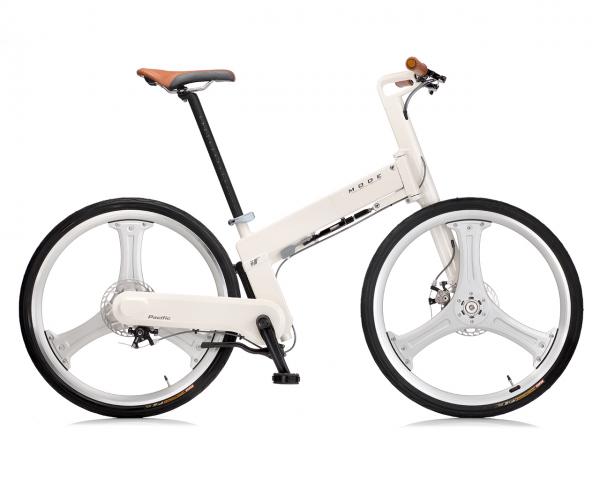
Increased maneuverability in tight spaces
One of the major advantages of using a folding bike is its increased maneuverability in tight spaces. Since the bike can be folded and stored in a compact space, riders can navigate through narrow hallways, store the bike under a desk at work, or even bring it onto crowded public transportation. This level of flexibility is especially useful for urban commuters who need to navigate through congested city streets with limited space.
Additionally, the bike’s smaller size and lighter weight make it easier to handle and maneuver, which can also be beneficial for riders with limited mobility or strength. Overall, the increased maneuverability of a folding bike provides a level of convenience and ease that traditional bikes cannot match.
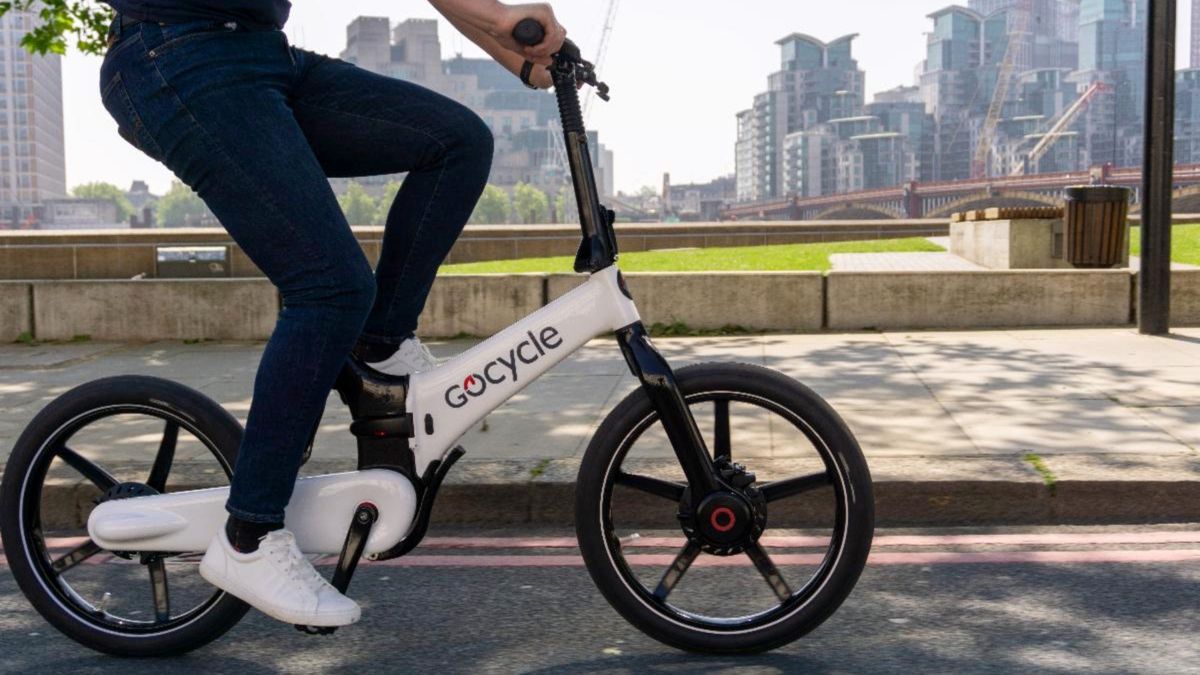
Ability to fold and store in small spaces
As a triathlete, space and portability are important when choosing the right bike for training and races. That’s where folding bikes come in handy. The ability to fold and store in small spaces allows easy transportation and storage, especially for those living in small apartments or commuting via public transportation.
It also makes it easier to bring along on trips or pack in a car with other gear. The folding design doesn’t compromise performance, as folding bikes are increasingly becoming more versatile for multiple types of terrain. However, it’s important to note that certain models may not fold to be very compact.
For instance, the FX13 road-bike-like setup with curve drop bars may result in a larger foldable bike. Nonetheless, ease of transport is a major benefit of using a folding bike for triathlons, especially considering the limited space in transition areas or when traveling to events.
Eco-friendly option for commuting
As a triathlete, I’m always looking for ways to reduce my carbon footprint, and using a foldable bike as a commuting option is a great eco-friendly solution. Folding bikes are incredibly efficient, requiring less energy to travel the same distance as a traditional bike due to their lightweight design.
Additionally, their compact size means they take up less space on the road, reducing congestion and emissions from other vehicles. Using a foldable bike can also save you money on gas and parking costs, making it a cost-effective solution for commuting. Choosing a foldable bike for commuting is a great way to reduce your environmental impact while improving your health and fitness levels.

Potential cost savings compared to traditional bikes or cars
When considering the use of folding bikes, one of the major benefits is the potential cost savings compared to traditional bikes or cars. Traditional bikes, while often less expensive than folding bikes, require additional maintenance and storage costs. Cars come with even more costs, including gas, insurance, and maintenance.
Using a folding bike as your primary mode of transportation can save you money in the long run by reducing these traditional costs. Additionally, if you can use public transportation with your folding bike, you can reduce costs by eliminating the need for a personal vehicle.
As someone committed to reducing my carbon footprint and living a more sustainable lifestyle, potential cost savings is just one of the many reasons I choose to use a folding bike for my daily commute and for any potential athletic events, including triathlons.

3 Cons
One disadvantage of using a folding bike in a triathlon is the limited gear options. Because of their compact size, folding bikes typically have fewer gears compared to traditional road bikes, making them less efficient on uphill sections of the course.
Another con to consider is the reduced aerodynamics of a folding bike, which can impact speed and performance during the cycling leg of the race. Additionally, folding bikes may have limited durability over time, especially if used frequently or subjected to harsh terrain.
Despite these drawbacks, a folding bike’s versatility, portability, and cost savings may still make it a worthwhile option for triathlon participants, especially those who prioritize convenience and eco-friendliness.
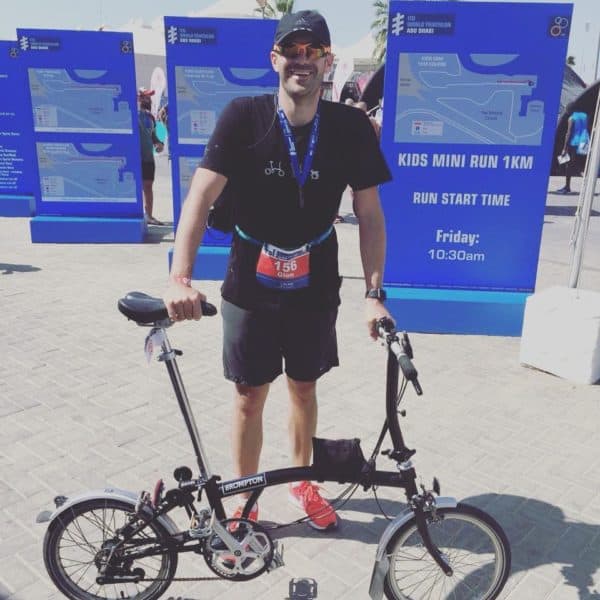
1. Limited Gear Options
As we have established in the previous sections, folding bikes have numerous advantages, making them a favorable option for many riders. However, it is important to consider some of their limitations as well. One of these is the limited gear options for most folding bikes. Unlike traditional bicycles that can have upwards of 20 gears, most folding bikes have fewer gears due to the space limitations involved in their design.
This means that you may struggle when it comes to tackling steep hills or high-speed descents. While this may not be a deal-breaker for some, it is something to consider before purchasing. If you plan to use a folding bike for a triathlon, you will want to weigh the pros and cons carefully and consider whether the limited gearing might affect your performance.

2. Reduced Aerodynamics
Reduced aerodynamics is a major downside to using a folding bike in a triathlon. While they are versatile and easy to transport, folding bikes are not designed with aerodynamics in mind. This means they may not perform as well as traditional road or triathlon bikes regarding speed and efficiency.
Additionally, the smaller wheels and frame of folding bikes can make achieving an optimal riding position more difficult, which can further hinder performance. While folding bikes may be a convenient option for commuting or leisurely rides, they may not be the best choice for competitive events where speed is a top priority.

3. Limited Durability
Another important aspect to consider when using folding bikes in triathlons is their limited durability. Unlike traditional bikes, folding bikes are built with smaller and lighter components that may not withstand the wear and tear of a triathlon race. Folding bikes can be susceptible to damage from rough terrain, jumping off curbs or ramps, and high-speed crashes.
Additionally, their small size and intricate folding mechanisms can make them more vulnerable to wear over time. The constant folding and unfolding motions can cause stress on the bike’s joints and hinges. Therefore, it is crucial to invest in a high-quality folding bike with durable components and regularly maintain and inspect it to prevent any damage or malfunctions during the race.

Summary
In summary, folding bikes have both pros and cons when it comes to using them in triathlons. They offer increased portability and easier transportation, versatility for different terrain, reduced maintenance, increased maneuverability in tight spaces, and potential cost savings. However, they also have limited gear options, reduced aerodynamics, and limited durability. Ultimately, it comes down to personal preference and the specific needs of the individual athlete. While a folding bike may not be ideal for a serious triathlete, it can still be a viable option for those who prioritize convenience and eco-friendliness.